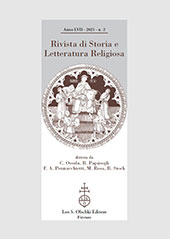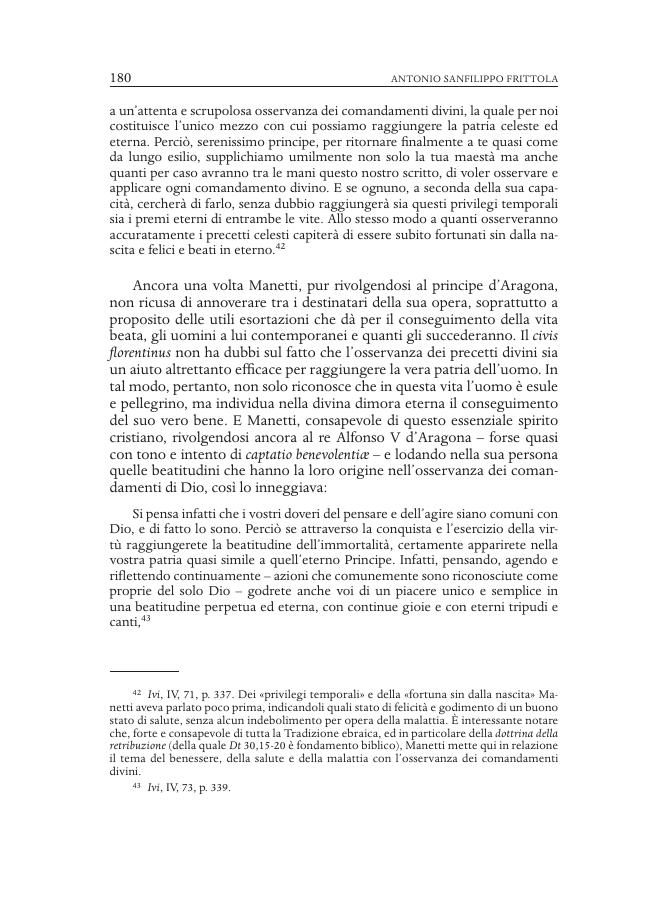Giannozzo Manetti e il De bono mortis di Ambrogio di Milano
P. 165-197
In the mid-sixteenth century, the Faculty of Theology of Leuven saw the rise of a new paradigm: the tolerant attitude towards reading the Bible in the vernacular – which was common in the first part of the century – turned into an outright rejection of this practice. The growing reticence had certainly been fueled by the advance of Protestantism, whose errors and heresy were believed to reside precisely in an arbitrary and undisciplined reading of the Bible. The Sicilian theologian Giovanni Bologni (also known as Giovanni a Bononia or Johannes a Bononia), who was in Leuven between 1545 and 1556, became the spokesman of those who, within the Faculty of Theology, called for the prohibition of reading the Bible in the vernacular.
His opposition became manifest in at least three circumstances. First, he played a remarkable role in the dramatic meeting, held in the second half of 1552 or in 1553, when the Faculty of Theology asked Emperor Charles V to issue a general ban on reading the Bible in the vernacular. Later, Bologni consigned his ideas to an appendix of his De aeterna Dei praedestinatione et reprobatione (1552).
Lastly, his toponymic was used by the Spanish humanist Fadrique Furió Ceriol as the title of a work, bearing the subheading De Libris sacris in vernaculam linguam convertendis, libri duo (which illustrated the outcome of the debate, that had taken place in Leuven, between those who supported the reading of the Bible in the vernacular and those who were opposed). However, Charles V did not welcome the intransigent position publicly taken by Bologni, since it clashed with the policy of tolerance promoted across the Empire. The Sicilian theologian left Leuven in 1556 and returned to his native land with profitable benefits. [Publisher's text]
-
Articles from the same issue (available individually)
-
Information
DOI: 10.1400/287581
ISSN: 2035-7583
DISCIPLINES



